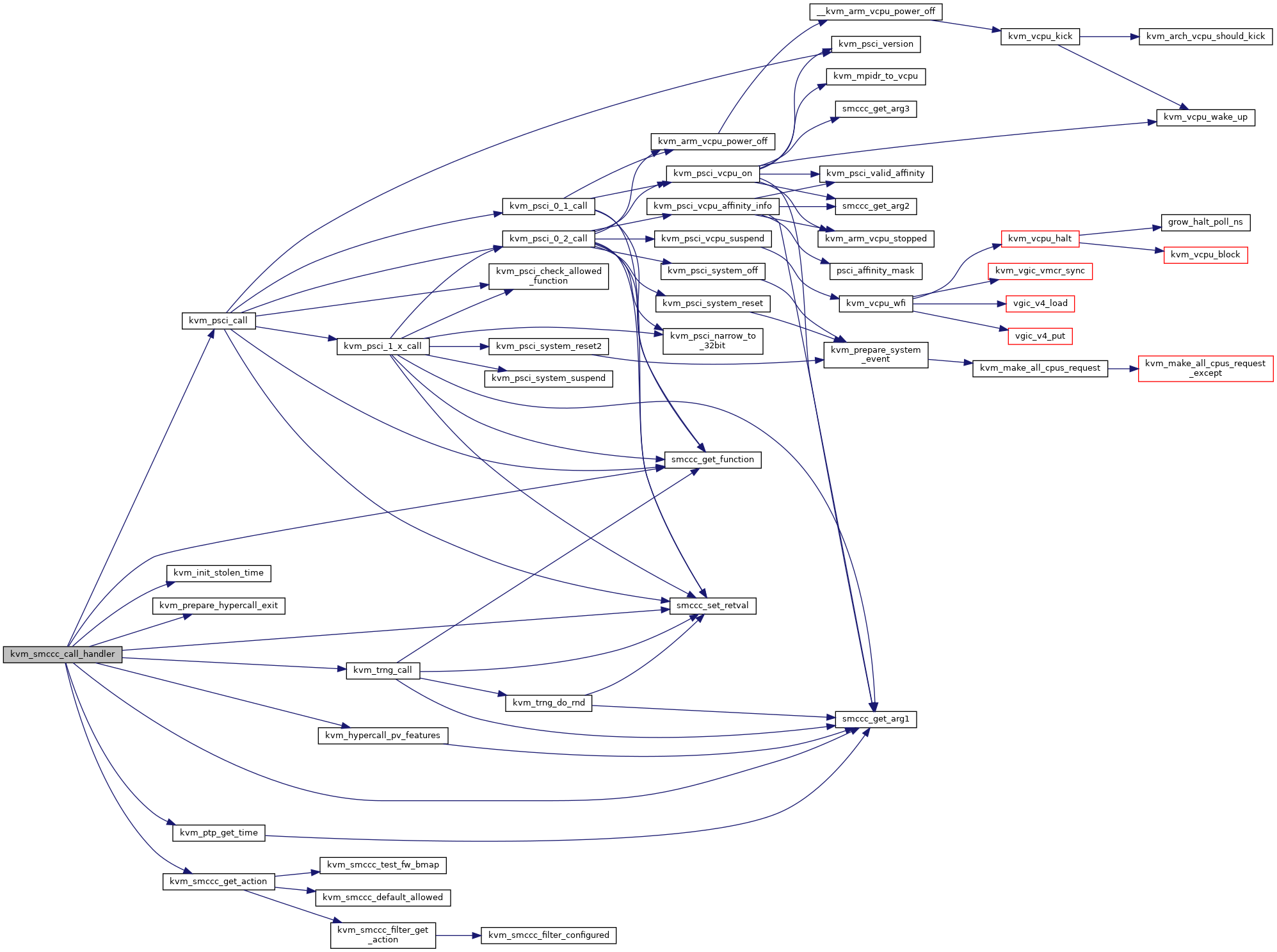265 struct kvm_smccc_features *smccc_feat = &vcpu->kvm->arch.smccc_feat;
267 u64 val[4] = {SMCCC_RET_NOT_SUPPORTED};
274 case KVM_SMCCC_FILTER_HANDLE:
276 case KVM_SMCCC_FILTER_DENY:
278 case KVM_SMCCC_FILTER_FWD_TO_USER:
282 WARN_RATELIMIT(1,
"Unhandled SMCCC filter action: %d\n", action);
287 case ARM_SMCCC_VERSION_FUNC_ID:
288 val[0] = ARM_SMCCC_VERSION_1_1;
290 case ARM_SMCCC_ARCH_FEATURES_FUNC_ID:
293 case ARM_SMCCC_ARCH_WORKAROUND_1:
294 switch (arm64_get_spectre_v2_state()) {
295 case SPECTRE_VULNERABLE:
297 case SPECTRE_MITIGATED:
298 val[0] = SMCCC_RET_SUCCESS;
300 case SPECTRE_UNAFFECTED:
301 val[0] = SMCCC_ARCH_WORKAROUND_RET_UNAFFECTED;
305 case ARM_SMCCC_ARCH_WORKAROUND_2:
306 switch (arm64_get_spectre_v4_state()) {
307 case SPECTRE_VULNERABLE:
309 case SPECTRE_MITIGATED:
320 if (cpus_have_final_cap(ARM64_SSBS))
323 case SPECTRE_UNAFFECTED:
324 val[0] = SMCCC_RET_NOT_REQUIRED;
328 case ARM_SMCCC_ARCH_WORKAROUND_3:
329 switch (arm64_get_spectre_bhb_state()) {
330 case SPECTRE_VULNERABLE:
332 case SPECTRE_MITIGATED:
333 val[0] = SMCCC_RET_SUCCESS;
335 case SPECTRE_UNAFFECTED:
336 val[0] = SMCCC_ARCH_WORKAROUND_RET_UNAFFECTED;
340 case ARM_SMCCC_HV_PV_TIME_FEATURES:
341 if (test_bit(KVM_REG_ARM_STD_HYP_BIT_PV_TIME,
342 &smccc_feat->std_hyp_bmap))
343 val[0] = SMCCC_RET_SUCCESS;
347 case ARM_SMCCC_HV_PV_TIME_FEATURES:
350 case ARM_SMCCC_HV_PV_TIME_ST:
352 if (gpa != INVALID_GPA)
355 case ARM_SMCCC_VENDOR_HYP_CALL_UID_FUNC_ID:
356 val[0] = ARM_SMCCC_VENDOR_HYP_UID_KVM_REG_0;
357 val[1] = ARM_SMCCC_VENDOR_HYP_UID_KVM_REG_1;
358 val[2] = ARM_SMCCC_VENDOR_HYP_UID_KVM_REG_2;
359 val[3] = ARM_SMCCC_VENDOR_HYP_UID_KVM_REG_3;
361 case ARM_SMCCC_VENDOR_HYP_KVM_FEATURES_FUNC_ID:
362 val[0] = smccc_feat->vendor_hyp_bmap;
364 case ARM_SMCCC_VENDOR_HYP_KVM_PTP_FUNC_ID:
367 case ARM_SMCCC_TRNG_VERSION:
368 case ARM_SMCCC_TRNG_FEATURES:
369 case ARM_SMCCC_TRNG_GET_UUID:
370 case ARM_SMCCC_TRNG_RND32:
371 case ARM_SMCCC_TRNG_RND64:
static u32 smccc_get_function(struct kvm_vcpu *vcpu)
static void smccc_set_retval(struct kvm_vcpu *vcpu, unsigned long a0, unsigned long a1, unsigned long a2, unsigned long a3)
static u8 kvm_smccc_get_action(struct kvm_vcpu *vcpu, u32 func_id)
static void kvm_ptp_get_time(struct kvm_vcpu *vcpu, u64 *val)
static void kvm_prepare_hypercall_exit(struct kvm_vcpu *vcpu, u32 func_id)
int kvm_psci_call(struct kvm_vcpu *vcpu)
long kvm_hypercall_pv_features(struct kvm_vcpu *vcpu)
gpa_t kvm_init_stolen_time(struct kvm_vcpu *vcpu)
int kvm_trng_call(struct kvm_vcpu *vcpu)




























